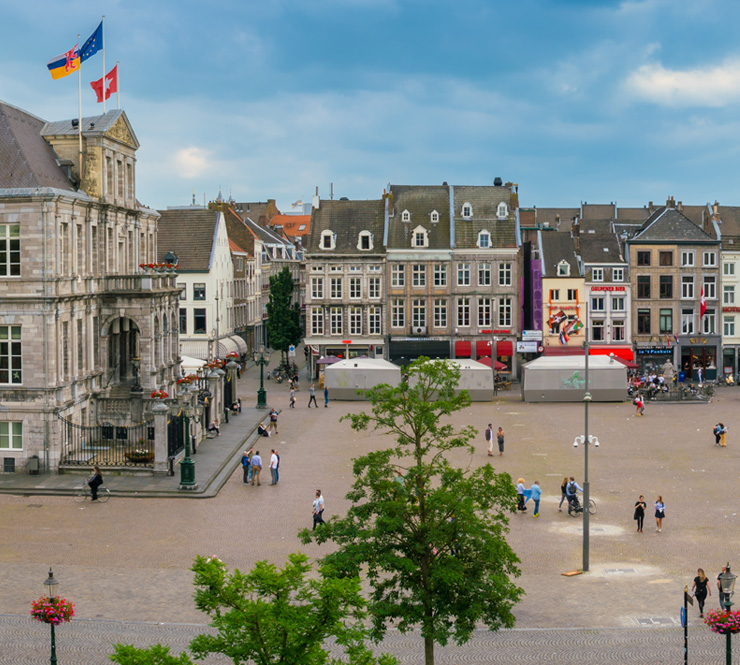COURSE DETAIL
This course teaches the function and organization of the animal cell and its components. From the molecular level up to and including the functioning of cells in the tissues of living organisms. In the first part of this course, the central dogma of molecular biology is discussed. DNA replication, transcription, translation, and its regulation. Using bioinformatics, the complex genome and the regulation of gene expression is reviewed. In the second part cell function is discussed, such as protein sorting, membrane transport, signaling pathways, the cell cycle, and the cooperation of cells in tissues. For example, apoptosis, cell-cell contacts, and tissue renewal by stem cells are covered. Attention is paid to situations in which these processes no longer function properly, such as in cancer. Participants are required to independently reads the book chapter by chapter. After each chapter, a sequence of e-assessments, lectures, assignments, and response lectures is followed. Starting after a short e-assessment the teacher, a specialist in his field, discusses the information of the chapter in a seminar. To get a deeper understanding of the content in the chapter, students make assignments in small groups of 4-5 students. Hereafter the teacher is available to discuss the answers to the assignments and to clarify any misconceptions in a response lecture. The current use of the knowledge from the textbook is exemplified during a journal club, where groups of students present a Cell paper. The topic of the papers is current literature on cancer research. Attendance during the tutorials and journal clubs is mandatory. In addition, the individual self-assessments are also part of the effort requirements. Entry requirements include successful completion of MBLS-101 (Cell Biology) or an equivalent level 1 course in Molecular Cell Biology. Recommended: MBLS-202 (Molecular Biology & Biochemical Techniques)
COURSE DETAIL
This course offers an introduction to basic Dutch. The course consists of a weekly lecture, and roughly four hours of self-study and homework per week. The course focuses on basic speaking and listening skills.
COURSE DETAIL
This course is about an omnipresent yet curiously ill-understood phenomenon in politics and government: leadership. What does it mean when people say they want better leadership? What place can leadership have in a democracy? How is its exercise being facilitated and constrained by the institutions of democracy and the rule of law? How do people who occupy senior public offices exercise leadership and how can leadership be exercised by those who don’t? Through discussing the literature, watching and analyzing episodes of political drama series and documentaries, case studies, meetings with practitioners, and a simulation the course explores how to systematically understand and evaluate various forms of public leadership. Among the key questions the course addresses are: What are the distinctive and functions of leadership in politics and government? Is ‘democratic leadership’ an oxymoron? How does leadership in democracies and autocracies differ? Why do people follow leaders – even really bad ones? How do we know successful political, administrative and civic leadership when we see it? What role do personality, context and skills play in leadership processes? How can we understand, distinguish and evaluate leadership styles? How do leaders cope with the special challenges and opportunities presented by major disruptions and crises? How can we organize effective leadership succession in politics and public administration? During the course, several guest speakers share their knowledge and experience and participants experience acting as a political leader during a simulation. It is vital that reading and coursework are completed before class, so that literature can be (critically) discussed during the meetings and be present during meetings. Please note that for non-USG bachelor students the course 'Introduction public administration and organizational science (USG5520/USG5020)' or another introduction course covering the subject of public administration/political science is required.
COURSE DETAIL
Debating skills are a key component of academic life. This means that you should be able to defend your own position and refute opposing positions by providing substantial arguments based on relevant academic sources. In this project, participants prepare, present, and defend with peers a position for an academic debate on a specific topic. The available topics emerge out of a wide range of UCM courses from different concentrations. Students can submit their preferences for topics beforehand but should be prepared to commit to any topic to which they are assigned. At the start of the project, each group discusses their topic and settle on a concrete proposition for their final debate. After that, groups split into a PRO (“yes”) and a CON (“no”) side. The two sides prepare separately for the final debate. A crucial part of the preparation for their final debate is writing a collective position paper based on self-study of academic sources. The purpose of this position paper is to be informed about the topic of the debate, by developing arguments, anticipating counterarguments, and coming up with rebuttals to these counterarguments.
COURSE DETAIL
The course consists of an integrated historical and a philosophical part. In the historical part, the period ca. 1900 until the present and concentrate on the development of biology as a separate scientific discipline, characterized by research programs that took shape over time is covered. In this section the following topics are reviewed Kant’s Critic of Judgment and the emergence of the teleological understanding of living beings; The Cuvier-Geoffroy debate and its influence in the development of Darwin’s theory of evolution; Darwin's theory of evolution; The rise of experimentalism in the nineteenth-century biology; The eclipse of Darwinism and discussion of neo-Lamarckism in early twentieth century; The emergence of the synthetic theory of evolution; The foundations of genetics and molecular biology; and The postgenomic turn in 21th century. The historical part ties in with several of the themes covered in the philosophical part. Some of the philosophical debates discussed in the class are Philosophy of biology and its relation to biology; The central concepts of Darwin’s theory of evolution; Adaptationist debate; Species, genes, race, classification, and taxonomies; Causality and explanation in biology; and Experimental biology and epistemic objects. The course includes lectures and tutorials. Participants are expected to have carefully read the required material and have completed the weekly assignment in advance of the meeting. The weekly assignment is a reading report or a critical question depending on the week. Entrance requirements included enrollment in a degree programme of the Faculty of Science.
Pagination
- Previous page
- Page 2
- Next page





